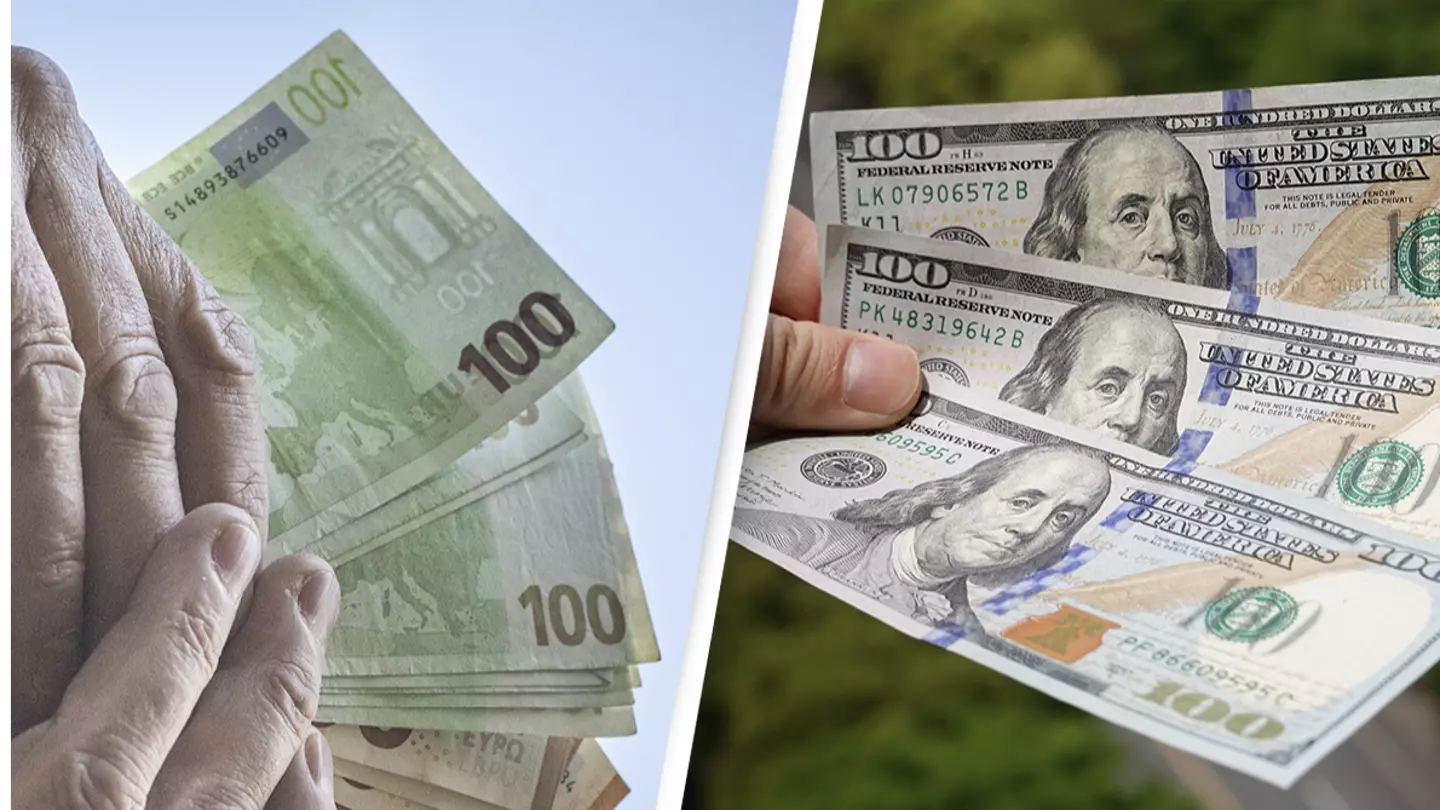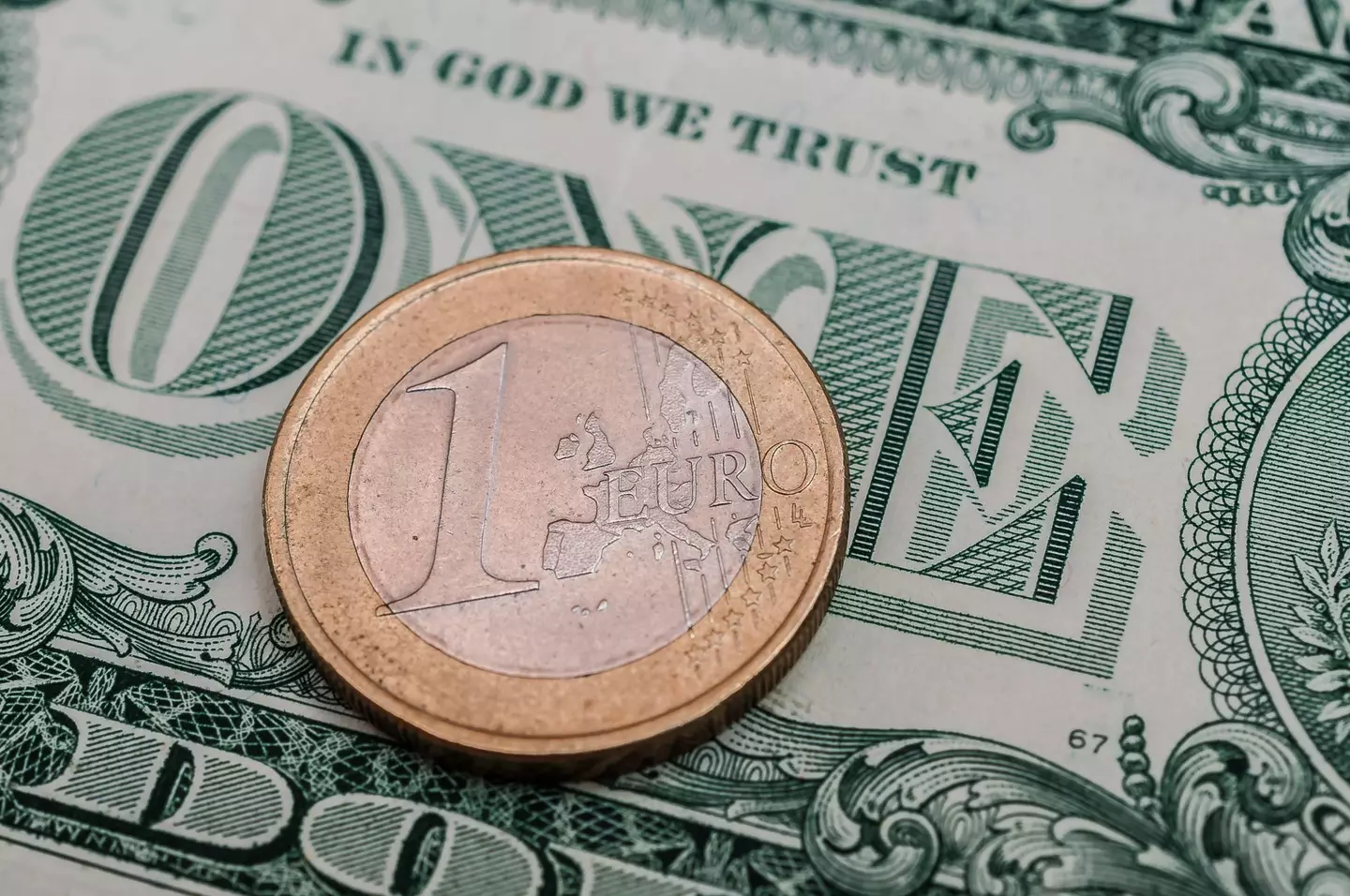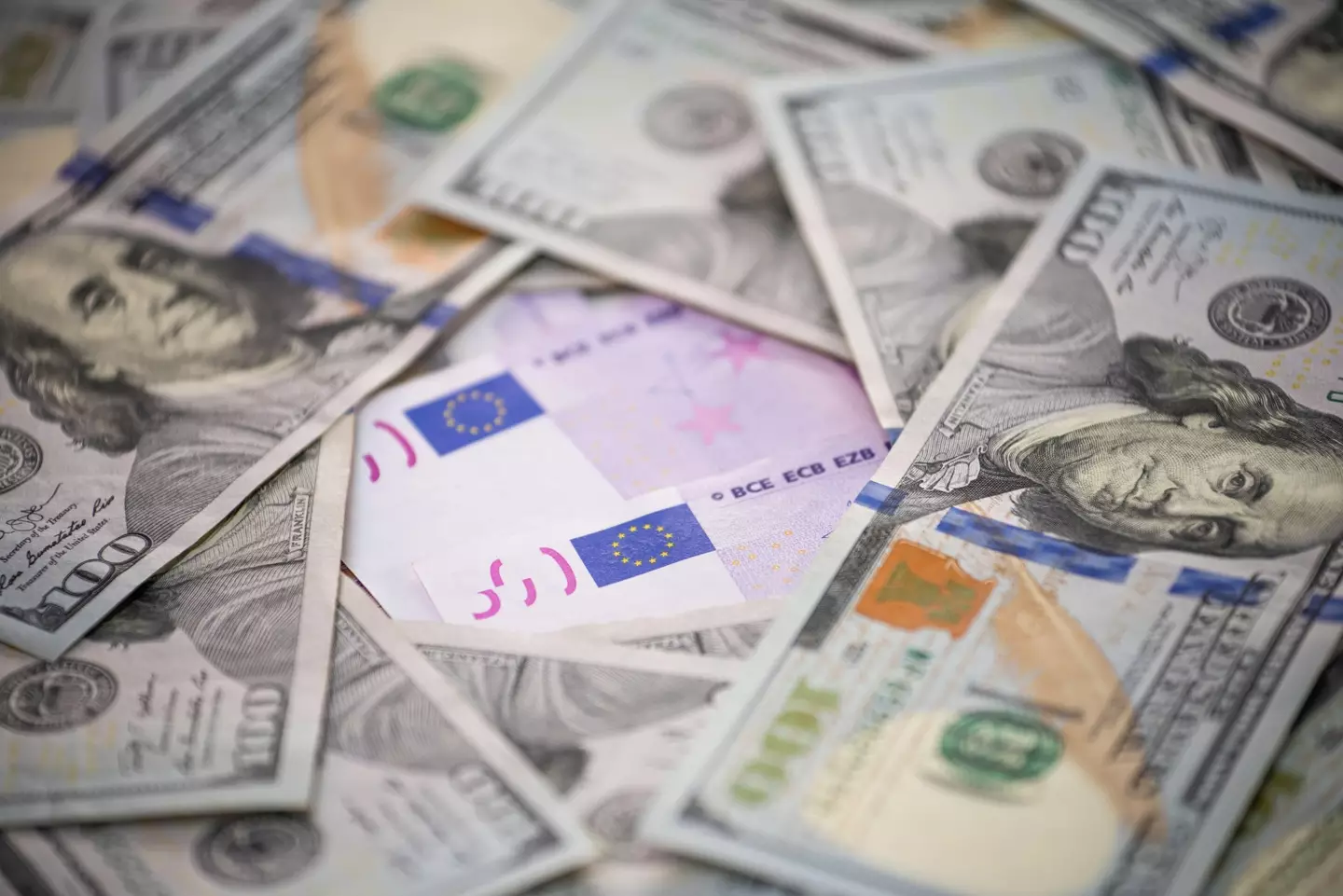
The exchange rate between the euro and the US dollar is almost the same for the first time in almost two decades.
Earlier, the euro officially hit $1.00001, according to Refinitiv data, before increasing slightly, Sky News reports.
Yesterday (Monday 11 August), the euro was around $1.004, down around 12 percent since the beginning of the year.
It comes amid fears of poor economic growth in Europe alongside concerns that Russia may turn off its gas pipeline. If Vladimir Putin was to shut off gas supplies to Europe, numerous countries could be hit with gas rationing, which would have an impact on workplaces and other industries reliant on the supply.
Advert
On Monday, Russia turned off Nord Stream 1, the single largest pipeline carrying gas to Germany, for annual maintenance which is set to last for 10 days.

However, there are concerns that it could be closed off for longer due to Russia’s ongoing war with Ukraine.
Fiona Cincotta, senior financial markets analyst at City Index, told the Guardian: “Fears are rising that Russia may not switch the gas supply back on in 10 days when the works are over. This could cause a recession in Europe.”
Meanwhile, Deutsche Bank strategist Jim Reid wrote earlier this week: “Indeed this is a heavy cloud hanging over European assets at the moment, and they were among the worst global performers yesterday as the prospect of a chaotic gas situation and recession came closer into view.”
German economy minister Robert Habeck has warned the country needs to be prepared for ‘the worst-case scenario’.

He told radio station Deutschlandfunk: "Everything is possible, everything can happen.
"It could be that the gas flows again, maybe more than before. It can also be the case that nothing comes.
“We need to honestly prepare for the worst-case scenario and do our best to try to deal with the situation.”
Experts say they don’t see the situation changing anytime soon, either.
Saxo Bank foreign exchange strategists told CNN: "Given the nature of Germany's exports, which are commodity-price sensitive, it remains hard to imagine that the trade balance could improve significantly from here in the next few months given the expected slowdown in the Eurozone economy.”
Meanwhile, the US dollar is seeing a boost - thanks in part to the US central bank raising rates more aggressively than the European central bank.
If you have a story you want to tell, send it to UNILAD via [email protected]
Topics: World News, US News
